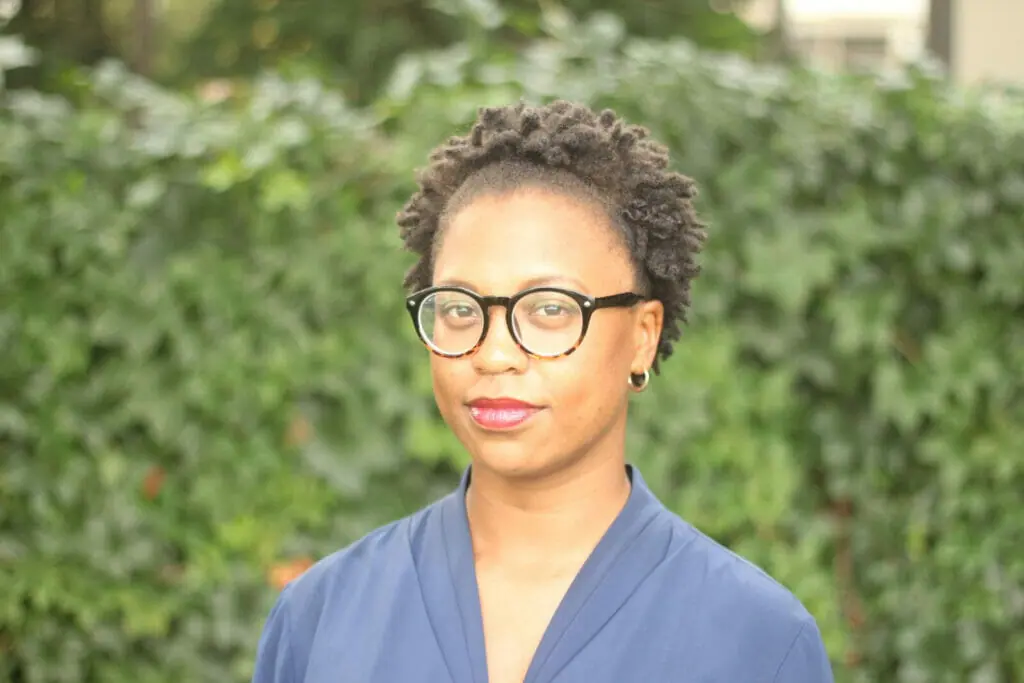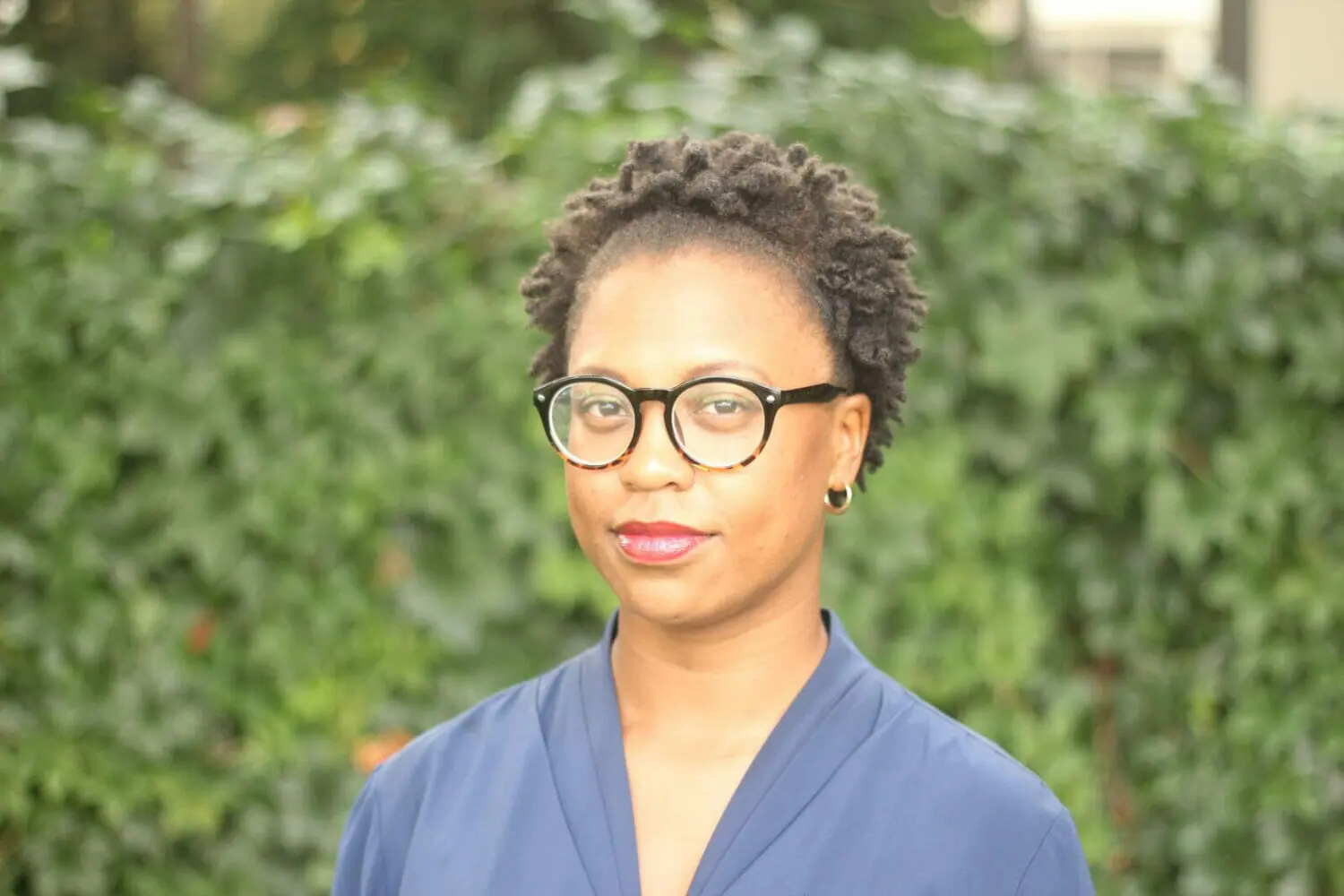Jalana Lewis is beginning a vital role at Dalhousie University for the second time in five years.
In 2016 Lewis, who formerly worked in law and social justice, managed Lindell Smith’s successful campaign to become the first Black city councillor in Halifax in 16 years. After that, she became the lead researcher on the Lord Dalhousie Panel examining the university’s history and connections to slavery.
This year, after co-managing another successful municipal campaign with Smith, Lewis is back on campus as Dal’s first director of African Nova Scotian community engagement.
The position was created out of a recommendation from Dal’s African Nova Scotian Strategy Working Group, which is part of a team working to ensure the university better meets the needs of African Nova Scotian students.
What will the position actually do?
Lewis says she sees her job as encompassing two roles. One is to help Dal “improve their relationship” with the African Nova Scotian community.
“I see my job, as well, to ask members of the African Nova Scotian community how things are going, and how they could better be improved, so that I’m not the only person informing Dalhousie when it comes to how to better improve relationships,” Lewis said.
After working to elect the first Black city councillor in decades, then intensively researching the history of Dal’s connection to slavery, Lewis has an informed perspective on the past and future of the African Nova Scotian community.

“I do think that [the two job experiences] were really connected because they were very much built in the idea that in order to move forward, we also need to look back,” she said.
Though in development for years, the creation of this position is timely. The Black Lives Matter movement saw a resurgence over the summer, and in September Dal joined more than 500 post-secondary institutions across the country for Scholar Strike Canada, a protest against anti-Black police violence and call for racial justice.
More recently on Oct. 20, Queens University removed John A. Macdonald’s name from their law building to no longer commemorate the first prime minister who is considered the architect of the Canadian residential school system.
Since the African Nova Scotian community has had a relationship with Dal for centuries, Lewis’s work needs to go beyond what is timely, she says.
“I’m not sure that if there were one or two quick things I could do, that that would actually make members of the African Nova Scotian community believe, ‘Okay, Dal is ready,’” she said. “I think that the relationship building, just based on the history of the province, I think it’s going to take some time.”
This doesn’t mean there can’t be changes made quickly, Lewis said. But with an institution the size of Dal, she’s hesitant to implement anything before spending the proper time learning how the university works.
“What does alumni engagement and advancement do? What does the HR staff recruitment team do? If there’s a certain faculty that’s looking at better engaging African Nova Scotians, or has been for a while, what have they been up to?” she said. “I really think that I’ll be able to do my job well if I actually understand the institution I’m working in first.”
A student and leader
Born and raised in Halifax’s North End region, Lewis attended Concordia University in Montreal for her undergrad and returned to Halifax to attend Dal’s Schulich School of Law.
While in high school in Halifax, Lewis never thought of going to Dal. The South End area in Halifax where the university is primarily located has always been a white neighbourhood, she says, so growing up in the North End she was rarely near the campus.
“If I would have been on campus, I didn’t necessarily see people who looked like me or people I knew from my community working on campus, teaching on campus,” she said. It’s not that Lewis felt she wouldn’t belong at Dal. It was more the university didn’t even occur to her as an option, she said.
Lewis recognizes that outreach to students in the African Nova Scotian community is important for Dal, but she says the most important factor is for students to see themselves represented in Dal faculty.
“People often choose paths based on where they can imagine themselves,” she said.
Lewis experienced this issue first-hand when she was a law student at Dalhousie; she graduated as valedictorian in 2013.
“What I would want to keep in the top of my mind is what it was like to be a law student and to walk into a building and only see portraits of mostly white men and some white women, and what that signals to me and reminded me of every single day that I walked into that building,” Lewis said.
During her time in law school, Lewis says she only had one professor who wasn’t white. That professor was Indigenous and taught Indigenous law.
“I know that there are lots of students from my community who have similar experiences. They continue to have similar experiences,” Lewis says. This can discourage students as they begin to imagine themselves in a professional setting, she says.
When her three-year contract is over, Lewis hopes to have changed the way the African Nova Scotian community perceives the university.
“I’d like members of the African Nova Scotian community to see Dal as a first choice when it comes to choosing university, whether that be undergrad, master’s or doctorate level,” she said. “And also a first choice, a first stop, when thinking about career prospects.”


Recent Comments